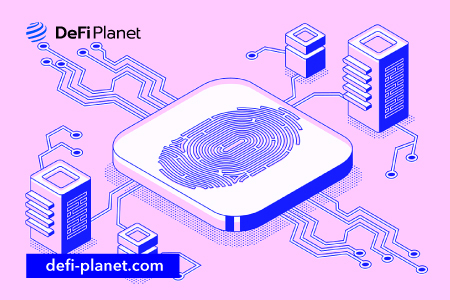The novel blockchain technology is gradually penetrating the global economy and adding value to businesses, thanks to its unique properties like decentralization and transparency. In essence, the blockchain is set to transform many industries, including the identity management system.
In 2013, over 3 billion Yahoo email accounts were breached and the identity of over 134 million Americans was stolen from credit bureau Equifax. The frequency of these attacks which could lead to malware at the end of the day has raised several questions.
Many countries, at several points, ask citizens to present some authorized government identities like Voter ID, or Passport. However, major problems of the identity management systems in several countries include centralization, privacy issues, and security breaches.
Currently, several documentation processes like purchasing a subscriber identification module (SIM) card, opening bank accounts, or accessing loans, requires the presentation of valid means of identification.
There is the possibility that blockchain will eliminate issues associated with identity management systems such as privacy and intermediaries.
In this article, we’ll take a look at how blockchain can be used to revamp identity management systems.
Let’s dive in!
How Blockchain is Used in Identity Management
It is important to understand the lapses in the current identity management systems before we see how blockchain technology can fill the gap.
In the identity management systems, we have now, data is often stored on servers. Though the internet was originally designed to work peer-to-peer without any form of interference, we’ve seen it become more privatized with the presence of intermediaries.
This method of storing data comes with several lapses such as security breaches, activities of middlemen, as well a lack of self-sovereign identity. However, there is a probability for blockchain technology to fill this gap.
With Blockchain technology, people can store their data without having to worry if their details will get stolen. This is because servers are more prone to hacks. But when data is stored on the blockchain, it is secured by cryptographic algorithms, making alteration and deletion impossible.
It is important to know that to store data and identities on the blockchain, individuals may be able to do so directly, thus eliminating the need for tagging intermediaries wherever they go online. This means users would not have to provide any sensitive data to a third party.
On the other hand, users can encode their personal data onto a blockchain that can be accessed by an intermediary. While this method does not get rid of third parties, it prevents them from storing sensitive data directly on their servers.
Blockchain also supports flexibility in digital identity management. These individuals can choose to have a single identity across multiple platforms or have different identities across platforms for work, friends, and family.
Why Blockchain is Important in Identity Management
Blockchain technology is beneficial to identity management systems in many ways. These benefits include:
- Self-sovereign identity
- Data monetization
- Data portability
Self-sovereign identity
Blockchain is important in the concept of self-sovereign identity which allows individuals and businesses to store their data on their own devices, choosing which information to share. In this case, identities can be created independent of a state or global organization.
Data monetization
Data monetization refers to the use of personal data for measurable economic benefits. Right now, the world is at a stage where it is being decided who earns from self-sovereign blockchain data or user-generated data.
It is worthy to note that insights generated from personally identifiable data are what increase the value of the underlying data. This online data being generated is intangible and complex without attribution. Attribution is critical in the process of data ownership and the self-sovereign identity is what attributes online data to an individual’s digital identity. This allows individuals to sell their identity to advertisers or rent it out to AI training algorithms, thus monetizing personal data. This means users will have the option of hiding their data from government or global organizations.
Data Portability?
In the context of data portability, individuals, when technically feasible, have the right to transmit their personal data from one controller to another directly. This creates room to enhance user experience and reduces the need to reverify identities across platforms.
Data portability allows users to easily sign up when needed and also severity themselves when trying to meet regulatory Know Your Customer(KYC) requirements. This reduces customer onboarding time and dropout rates.
Blockchain and Data Privacy
Studies have shown that personally identifiable information is greatly targeted by hackers, based on the 2018 statistics, over 98% of security breaches target this category of data. In many countries, identification information is stored on government databases which are centralized. Because these databases are backed by legacy software, there is a probability that numerous points exist.
These databases contain the identities of millions of people, making hackers focus more on this area. Though efforts are constantly being made to increase cybersecurity, data records are constantly exposed.
However, blockchain technology can enhance data privacy when used in identity management. Because the blockchain stores data cryptographically, privacy breaches rarely occur.
Can Identity Theft Happen on the blockchain?
Though the blockchain is potentially useful in identity management, this technology has its flaws. The blockchain secures data cryptographically. However, identity theft can occur in several ways. These include:
- 51% attack
- Stolen private keys
- Phishing links
51% attack
In the case of a 51% attack, identity theft may occur when a hacker takes control of more than half of the blockchain network housing the information database. This is an expensive process that requires a lot of time and money because the hacker will have to acquire more than half of the nodes in the network.
Stolen private keys
Individuals use private keys to access their information on the blockchain. In the event where a private key is stolen, individual privacy may be breached. Hence, it is advisable to keep private keys safe, away from the reach of a third party.
Phishing links.
Phishing links are rampant these days, causing several security bridges. Phishing links are random and malicious links sent to an individual via email or social media. When an individual clicks on this link, he or she may be redirected to another page where valuable data may be collected. When phishing occurs in identity management, a user may give up his or her data and this may result in identity theft.
Blockchain and the Future in identity management
As earlier stated, blockchain can simplify identity management systems, reduce the rate of hacks and identity theft, as well as eliminate the need for intermediaries.
There is a strong possibility of blockchain to transform identity systems and achieving this requires the widespread adoption of this technology. In the nearest future, blockchain may be used in every single area of identity management including:
- The collection of data from online interaction simplifies them for tax filing while reducing system fraud and errors.
- Enhancing user-controlled payment. For instance, getting a new credit card requires the changing of payment information for each service account. But if blockchain is used, this lengthy process is eliminated.
- Simplifying transactions like a car or house acquisition by verifying identity, insurance, credit, or title. This makes the buying process shorter and minimizes the need for paperwork.
- Facilitating health systems by giving doctors and pharmacists access to patients’ electronic medical information to enhance the tracing of required drug doses, monitor adverse drug reactions and prevent drug addiction.
In Conclusion…
- The blockchain has so many unique properties and its successful implementation in identity management can enhance the level of security and privacy.
- With blockchain, verification of identities can be done without intermediaries, saving a lot of time and money
If you would like to read more articles like this, follow DeFi Planet on Twitter and LinkedIn.





















